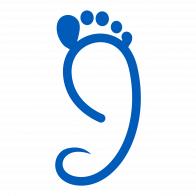CFI Tips: How to Teach a Student with a Disability
Here are a few tips to help you get started if this is your first time teaching someone with a disability.
Relax
The disability community is vast and complex. There is no way I can provide tips that will cover every situation, but having taught people with disabilities in other disciplines, I can probably tell you to relax.
People with disabilities are people first, with the same human desires as any human being is likely to have. Always think of them as your student and don’t let their disability be what defines them in your mind.
You may feel overwhelmed at first if this is your first dive into the disability world. You likely have lots of questions and maybe some doubts about what is possible. So, take a breath and relax because you already have an expert in this given disability: your student. Ask them questions and be optimistic but honest (and avoid the tropes).
Different but still the same
I have always enjoyed teaching students with neurodivergent minds. Being able to explain a concept to someone who views the world in a totally different way ensured I really knew what I was talking about. I messed it up, especially in the beginning and I’m still no expert.
What I did learn, though, is that it’s really all the same. When you see the end goal without preconceived notions and eliminate your ableist bias, it really and truly is no different than what you did with your previous students.
And we would all like to think we can eliminate our ableist tendencies, but truth be told I’ve been married to a woman with a disability for nearly a decade now and I’m still working on it.
The Way
The way you get to that end goal may be different. For many, they assume the accommodations will be many, they will cost a lot, and they will become a burden. In reality, the accommodations your student will need will likely be minimal.
Make sure your communication with your student is open and comfortable. It can be a fine line to walk when you are teaching your student about aviation and at the same time they are teaching you about their disability.
Be open to the possibilities. Don’t let your student quit when it gets hard [insert hard knocks lecture here] and don’t let yourself quit on your student either.
There’s so much more but I hope this gives you a starting point. Leave a comment below about your experience or if you have questions.

